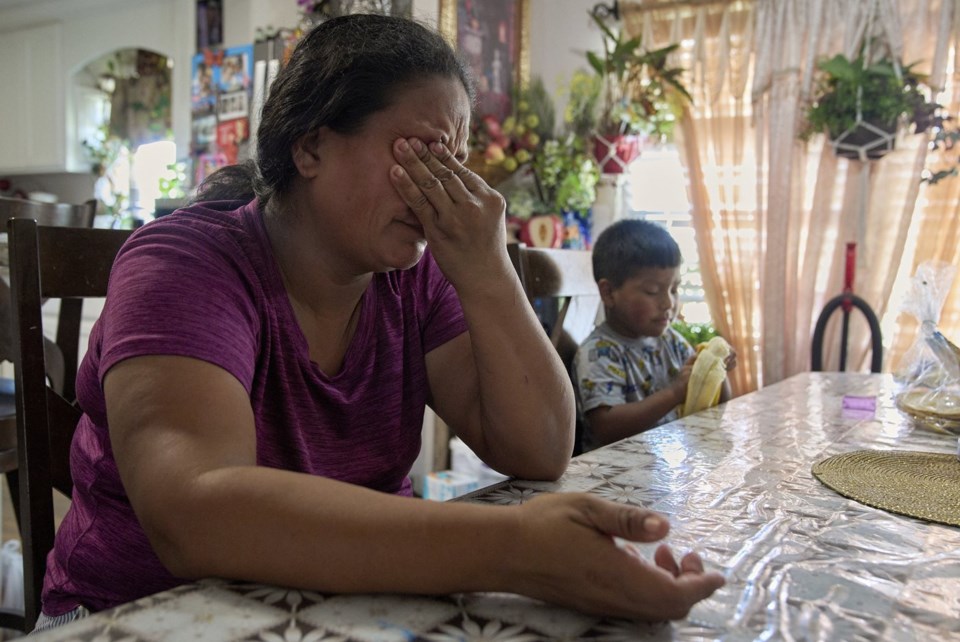WESLACO, Texas (AP) —
As President Donald Trump intensifies deportation activity around the country, some immigrants — including many who have lived in Texas’s southern tip for decades — are unwilling to leave their homes, even for necessary medical care.
“He waited and waited because he felt the pain but was too scared to go to the hospital.”
— 82-year-old Maria Isabel de Perez said of her son, whose appendix exploded earlier this year.
“We don’t talk about that, like who is legal. We probably would be surprised to know that they aren’t. This is something we don’t discuss.”
— Elizabeth, who lives in the Rio Grande Valle and attended a health class at Holy Family Service Inc. last month.
People here are among the most medically needy in the country.
Nearly half the population is obese. Women are more likely to be diagnosed with cervical cancer and elderly people are more likely to develop dementia. Bladder cancers can be more aggressive. One out of every four people live with diabetes.
As much as a third of the population here doesn’t have health insurance to cover those ailments. And a quarter of people live in poverty, more than double the national average.
Now, many in this region are on a path to develop worse health outcomes as they skip doctors appointments out of fear, said Dr. Stanley Fisch, a pediatrician who helped open Driscoll Children’s Hospital in the region last year.
White House officials have directed federal agents to leave no location, including hospitals and churches, unchecked in their drive to remove 1 million immigrants by year’s end. Those agents are even combing through one of the federal government’s largest medical record databases to search for immigrants who may be in the United States illegally.
Federal agents’ raids began reaching deeper into everyday life across the Rio Grande Valley in June, just as the area’s 1.4 million residents began their summer ritual of enduring the suffocating heat.
This working-class stretch of Texas solidly backed Trump in the 2024 election, despite campaign promises to ruthlessly pursue mass deportations. People here, who once moved regularly from the U.S. to Mexico to visit relatives or get cheap dental care, say they didn’t realize his deportation campaign would focus on their neighbors.
It feels like we’re living in a combat area. Even people like me who have status, I don’t want to go out either, we’re scared. They’re looking for any excuse. If they see you have brown skin or you’re Latino, they’ll take you.”
— Maria Gomez, a community health worker for Holy Family Services, Inc. said in Spanish, through an interpreter.
“Every day, I pray that the president will have a change of heart.”
— Maria, a mother who is married to an American in south Texas.
“What did we do to them?”
— Ofelia, a 73-year-old grandmother in Hidalgo County who is the sole caretaker of several grandchildren.
This is a documentary photo story curated by AP photo editors.
Text from the APNews story, As Trump’s raids ramp up, a Texas region’s residents stay inside — even when they need medical care, by Amanda Seitz and Jacquelyn Martin.
Jacquelyn Martin, The Associated Press



